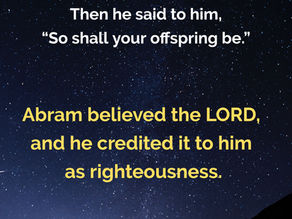2 Peter 1:16-21 - A Light Shining Into the Darkness
- Chad Werkhoven
- Jul 24, 2025
- 4 min read
The Bible is a light shining into the darkness. You'd do well to pay attention to it.

2 Peter 1:16-21
16 For we did not follow cleverly devised stories when we told you about the coming of our Lord Jesus Christ in power, but we were eyewitnesses of his majesty. 17 He received honor and glory from God the Father when the voice came to him from the Majestic Glory, saying, “This is my Son, whom I love; with him I am well pleased.” 18 We ourselves heard this voice that came from heaven when we were with him on the sacred mountain.
19 We also have the prophetic message as something completely reliable, and you will do well to pay attention to it, as to a light shining in a dark place, until the day dawns and the morning star rises in your hearts. 20 Above all, you must understand that no prophecy of Scripture came about by the prophet’s own interpretation of things. 21 For prophecy never had its origin in the will of man, but prophets, though men, spoke from God as they were carried along by the Holy Spirit.
Canons of Dordt
Article 6: The Saving Power of the Gospel
What, therefore, neither the light of nature nor the law can do, God accomplishes
by the power of the Holy Spirit,
through the Word or the ministry of reconciliation.
This is the gospel about the Messiah,
through which it has pleased God to save believers,
in both the Old and the New Testaments.
Summary
It's important to remember why it is that each weekday in this space we read the Bible and then dig deeper into it, and why it is that God calls us to gather on the Lord's Day (in many churches twice) to hear His Word proclaimed.
These words are not just ancient history, a religious guru's insights, nor cleverly devised stories. Rather, these Words - written over thousands of years and springing forth out of three languages and multiple massively different cultures, all univocally and powerfully point to one thing: the coming of our Lord Jesus Christ.
These words come to us presented in all sorts of different genres: historical narrative, poetry, prophecy, epistles and even apocalyptic (future revelation). Not only did the men who penned these books have the aforementioned cultural and linguistic differences, but they came from all walks of life - from simple men like Amos and Peter to erudite and educated men like Moses, Solomon, Daniel and Paul.
Lots of books have been written over the centuries by talented people sharing their wisdom with the generations that follow, with some of those books having greater and more lasting impact than others. But what makes the Bible different is that its message didn't originate with the authors. No prophecy, writes Peter, came about by the prophet's own interpretation (or experience) of things. Rather, he goes on, these prophets, though men, spoke from God as they were carried along by the Holy Spirit.
Dig Deeper
Paul describes this process of divine inspiration as God breathing through the human writer so that although the particular words and style reflect the culture, background and personality of the writer, the message is God's, and therefore is inerrant and infallible. Peter tells us that we have the prophetic message as something completely reliable (Peter here refers specifically to the Old Testament, but the principle applies to the New Testament as well).
Most Christians hold to the authority of scripture. That is, we submit ourselves to it in all matters of life and faith. We understand that God certainly speaks to us through His creation, but the noetic effect of sin clouds our ability to understand it completely. Scripture, then, becomes like a set of glasses that help us view the world with the focus God intends.
What makes us different as Reformed Christians is that we subscribe to Confessions, like the Heidelberg Catechism, Belgic Confession and the Canons of Dordt. These documents are subordinate to scripture, but they summarize what scripture says about Christianity's most important doctrines. In other words, we don't just say we believe in the Bible, we can tell you exactly what we agree that it teaches.
Because we have this, Peter continues, you will do well to pay attention to it, as to a light shining in a dark place, until the day dawns and the morning star rises in your hearts.
ACKNOWLEDGE WHO GOD IS: Our Father, who gives us His Words which accurately and authoritatively give rule to our lives and point us to the Word made flesh;
ALIGN YOUR LIFE WITH GOD'S WILL: Pray for the strength to do the hard work of knowing the Bible well. Pray that God begins to prepare you now for the Lord's Day lessons coming in a few days;
ASK GOD FOR WHAT YOU NEED:
Read the New Testament in a year! Today: Luke 20



















Comments